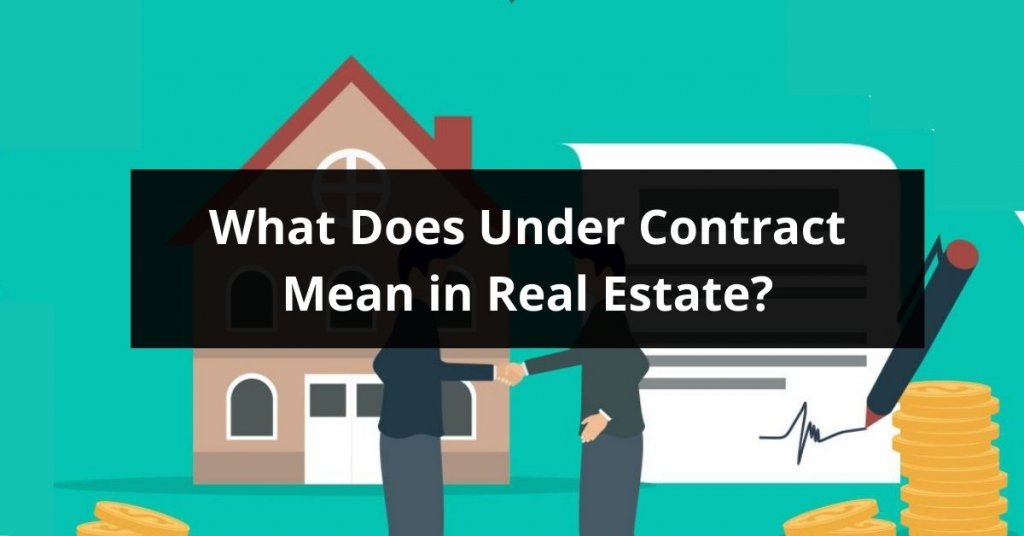When a house is under contract, it simply means that the seller has accepted the buyer’s offer, and both parties are holding up their responsibilities before closing. While it does mean everyone is contractually obligated to hold up their end of the deal, being under contract does not mean the sale is final.
An offer on a home is more than a dollar amount. First, the buyer and seller negotiate a contract in which they work out what they’re willing to cover, what contingencies they want in place, and what they expect of one another before closing. If both agree to the terms and a selling price, they sign their names, and the property is then under contract.
During this period, the buyer will need to produce the earnest money deposit along with a preapproval letter for their loan or mortgage. After this, they enter what is known as the due-diligence period.
This period includes an inspection of the property, an appraisal, and a title search. These stages are in place to ensure that all potential issues have been worked through before reaching the closing table.
How being under contract protects realtors.
Naturally, you’ll ask why a contract is necessary if the sale isn’t final. The reason this contract is in place is to protect the parties involved in the transaction from others wrongfully backing out of the deal.
Say a seller gets a better offer on the home. If it’s under contract, they cannot back out of the current deal. Alternatively, a buyer can’t rightfully back out if they find another home they deem more desirable. The only way anyone can back out is if a contingency allows for it.
You need to remember that the buyer and seller aren’t the only individuals involved, though. In other words, they aren’t the only people protected by the contract. So, if anyone were to wrongfully back out of the contract, it can directly impact the real estate agents, title companies, etc.
Agents rely on sale commissions to make a living, and if the deal doesn’t close, they don’t get paid. If the sale is impacted due to a breach of contract, the agents involved may be able to take clients to court to collect commissions.
What about buyers and sellers?
Contingencies is a key word here. Homes that are under contract are known as “contingent” in many areas. A contingency in the contract allows either the buyer or the seller to rightfully exit the deal if the other party fails to uphold their end of the deal or if the property isn’t what the seller has promised.
For example, a buyer without a preapproval may be given a certain amount of time to produce one. If they fail to do so within that timeframe, the seller may back out of the deal. There may also be contingencies in place regarding the time within which a buyer has to produce escrow funds.
The buyer may also set up contingencies to protect themselves. Something like having the seller perform any repairs necessary after an inspection within a set timeframe before closing is a common example. It’s also in the buyer’s best interest to have an appraisal performed to make sure the house is worth what they’re paying, and if it isn’t, a contingency may give them room to back out of the deal without ramifications.
As we know, these contracts also prevent anyone from wrongfully backing out of the deal.
More often than not, buyers worry about sellers backing out when a better offer is made on the property. In that case, a buyer may have the right to take legal action. However, buyers aren’t the only people protected. For example, if a buyer leaves the deal in favor of another property without a contingency allowing them to, the seller may also be able to take legal action.
Now that we know about what being under contract means, let’s jump into some additional frequently asked questions.
Can you make an offer on a house that is under contract?
Yes, you can make an offer on a house that’s under contract, but the seller cannot accept your offer unless the current deal falls through. If a seller does accept another offer, the buyer or the listing agent may have the option to take legal action against the seller.
What is the difference between pending and under contract?
Pending means the same thing as under contract, and which is used ultimately depends on your location. Contingent is another term you may hear that describes the same thing. No matter the case, all three terms describe a property in which the seller has accepted the offer but isn’t in the closing process.
What happens when a house goes under contract?
When a house is under contract, the buyer and seller will have to live up to their ends of the contract before closing. For the buyer, that means they have to come up with the earnest money and a preapproval letter. The seller must also have the home appraised and inspected. Both parties must also comply with whatever other responsibilities the contract states.
Can a seller put a house back on the market while under contract?
Yes, a seller can continue to show the home while it’s under contract. In fact, it’s a good practice to do so. That way, they can continue to attract buyers in case the original purchaser backs out or cannot obtain a loan in time.
Does under contract mean sold?
Under contract does not mean sold. It simply means an offer has been accepted, and both parties are working to close the deal. It serves as a period for both the buyer and seller to live up to their end of the deal before they agree to close on the home. At any time, the deal can fall through due to contingencies, and therefore the sale is not final.

